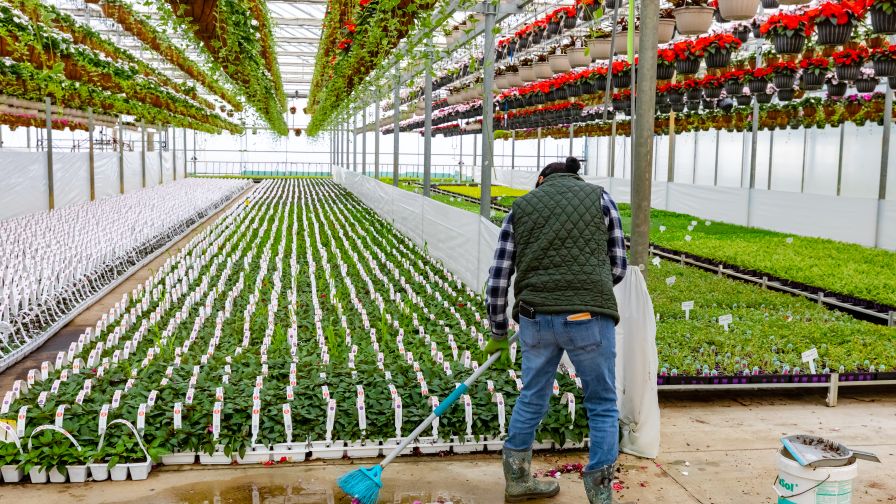Holistic, Integrated Approach To Pest Control Rooted In Research

Laura Drotleff
Greenhouse growers have been practicing integrated pest management for decades, but it’s becoming increasingly more important with the continued scrutiny of conventional pest control by a number of “regulators” — government, retail, and consumers.
I just returned from Meister Media Worldwide’s Biocontrols USA 2016 Conference, in Monterey, CA, at the beginning of March this year, which served 450 attendees and 50 exhibiting supplier companies. It’s clear from the presentations and the growing attendance at this specialized event — now only in its second year — that use of biocontrols in IPM will continue to be adopted widely, as more growers get past their personal hurdles of doubt and intimidation, and embrace a new way to approach pest and disease control.
Many growers think of using biocontrols as an all-or-nothing approach, but ultimately, IPM is about balance. Growers will need to continue to focus on IPM, integrating chemistry with biology, because just as chemical solutions will not always work for every problem, biocontrols may not provide the correct control every time.
“Biocontrols can’t be looked at as straight replacements for chemicals. They may not give the same level of control, and their use requires a different mindset and approach. They need to be put into a system where they can flourish,” said Michael Brownbridge, Research Director, Horticultural Production Systems at the Vineland Research & Innovation Centre in Ontario, Canada, in his presentation at Biocontrols USA 2016.
It’s amazing how much new research is happening that will benefit growers on so many levels, from improved understanding of how chemistry and biology can work together to the development of new technologies like CRISPR and RNAi that could completely change the face of pest and disease control. Some of these advances are being led by private companies, some by government agencies, but we also need independent, objective research at the university level to help bring the solutions you need to continue to adapt to the evolving needs and challenges you face. But without funding, this will not happen, and a critical link in the chain will be missing.
Some cuts coming to state Extension programs, and agricultural research and education could signify the beginning of a scary trend. A potential $50 million cut in Pennsylvania’s state ag budget would have long-reaching impacts to Extension and applied research. Wisconsin and New Hampshire residents are also fighting cuts to Extension that impact research, ag education programs, and more.
Special efforts from EPA are helping. As growers adapt their operations to adopt more biological controls, pest control companies are meeting demand by either investing in their own biological divisions or buying specialty companies. The EPA is recognizing this trend, and rewarding companies for their research and development of more sustainable solutions by making it easier to register new biocontrols products with a registration process that’s twice as fast and 10 times cheaper than the time and cost to develop conventional chemistry.
Since 1994, more than 400 biological active ingredients have been registered, with about 15 becoming available each year. EPA has registered six new biological active ingredients already in 2016. This attention to providing new biological solutions will be helpful with the broadening of our industry to grow more food crops in greenhouses, as well as cannabis, both of which have strict protocols and limited (veggies) or no (cannabis) chemical products federally registered. Growers of these crops will rely on more biological controls in accordance with government food safety mandates due to human consumption.
Continued investment from private companies and cooperation from EPA is even more critical in the face of what’s happening with budget cuts impacting Extension. Unbiased university research is critical to the success and the future of horticulture, and when it’s threatened, we as an industry generally do a good job rallying to fight for what’s right. We need that fighting spirit again.
Please write to your lawmakers — and write to lawmakers where these budgets are in jeopardy. Tell them what continued research and education means to your business and to our industry. This ongoing battle is up to all of us to fight, to support land grant universities doing imperative research to provide new, sustainable solutions for growers.
Meanwhile, stay tuned for details on Biocontrols USA 2017, and consider joining us to learn about research and trends in biocontrols, with a special grower tour and hands-on workshop to help you integrate biocontrols into your operation’s IPM program.










